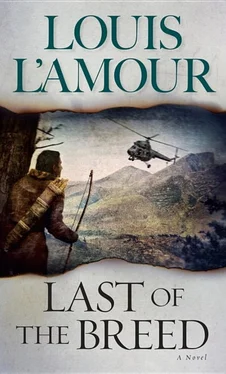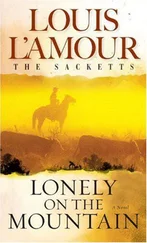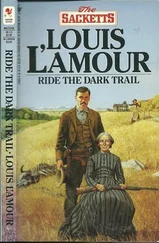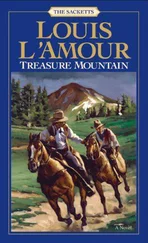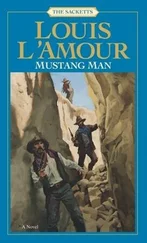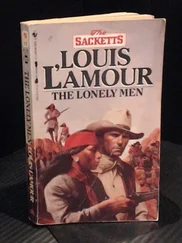Louis L'Amour - Last of the Breed
Здесь есть возможность читать онлайн «Louis L'Amour - Last of the Breed» весь текст электронной книги совершенно бесплатно (целиком полную версию без сокращений). В некоторых случаях можно слушать аудио, скачать через торрент в формате fb2 и присутствует краткое содержание. Город: New York, Год выпуска: 2010, ISBN: 2010, Издательство: Random House Publishing Group, Жанр: Триллер, Историческая проза, Приключения про индейцев, на английском языке. Описание произведения, (предисловие) а так же отзывы посетителей доступны на портале библиотеки ЛибКат.
- Название:Last of the Breed
- Автор:
- Издательство:Random House Publishing Group
- Жанр:
- Год:2010
- Город:New York
- ISBN:978-0-553-89935-1
- Рейтинг книги:3 / 5. Голосов: 1
-
Избранное:Добавить в избранное
- Отзывы:
-
Ваша оценка:
- 60
- 1
- 2
- 3
- 4
- 5
Last of the Breed: краткое содержание, описание и аннотация
Предлагаем к чтению аннотацию, описание, краткое содержание или предисловие (зависит от того, что написал сам автор книги «Last of the Breed»). Если вы не нашли необходимую информацию о книге — напишите в комментариях, мы постараемся отыскать её.
Last of the Breed — читать онлайн бесплатно полную книгу (весь текст) целиком
Ниже представлен текст книги, разбитый по страницам. Система сохранения места последней прочитанной страницы, позволяет с удобством читать онлайн бесплатно книгу «Last of the Breed», без необходимости каждый раз заново искать на чём Вы остановились. Поставьте закладку, и сможете в любой момент перейти на страницу, на которой закончили чтение.
Интервал:
Закладка:
Several times he paused to listen, but heard nothing but a soft wind blowing through the trees. Occasionally he saw birds. Grouse seemed common and a kind of lark that was unfamiliar to him.
Squatting near a piece of bare earth he tried to redraw from memory the map he had studied. South was the Amur and north the Lena. He was now east of Lake Baikal and moving toward the faraway coast, toward the Bering Strait and the Sea of Okhotsk. Between the Bering Strait and his present position lay several low ranges of mountains, much forest, swamp, and tundra lying just below or within the Arctic Circle.
The Yablonovyi, the Stanovoy, and the Verkhoyansk mountains lay between him and his objective, and some of the coldest land on earth.
Moving as he must, with great care, and traveling on foot, there was no way he could escape Siberia before winter. Nor was there any way in which he could last out the winter.
He had not the clothing, the shelter, or the supply of food necessary.
At more than fifty below, rubber tires crack and metal becomes fragile. If a car survives two to three years the owner is fortunate.
And winter was coming, with temperatures that would hover between fifty and eighty degrees below zero.
He stood up and with his boot he rubbed out his crude map. He started on, and just over the mountains the cold awaited.
Icy, bitter, deathly cold…
Chapter 4
Colonel Zamatev was sitting behind his table when Pennington entered the room. On the bench at one side sat Lieutenant Suvarov and the Yakut, Alekhin. There was a chair placed near the table that faced all three.
Zamatev gestured to the chair. “Sit down, please.” The Colonel had been an attache in both London and Paris. He spoke English and French with equal fluency.
Pennington seated himself warily. What lay before him he did not know. Did they know he had helped the American?
“Major Makatozi has escaped, and you talked with him.”
“A few words during the exercise period.”
“Nevertheless, you did speak. Did he tell you he planned to escape?”
“Would it be likely? He would not have trusted someone he did not know. He is an Indian. I do not believe they talk very much. Not, at least, to a strange white man.”
Makatozi was gone, and what harm could speaking do now? “As a matter of fact,” he added, “he did say something about leaving. I believe he disliked the accommodations.” Pennington smiled. “Even Indians expect better.”
Zamatev ignored the comment. He seemed disposed to be affable. What he wanted was information. Pennington considered that while he waited for the next question. He knew of nothing he could say that would affect the American’s chances, and he wished to apply the needle.
“Anything you can tell us might help him,” Zamatev suggested. “I am sure the Major had no idea what he was escaping to. You see, we had plans for the Major as we do for you. Both of you can be employed here, can live in comfort and security and have a better life than in your own countries.
“Escape from Siberia is impossible! Soon it will be winter. Without clothing, food, and shelter a man cannot exist.
“If he is unfortunate enough to elude pursuit, the land will kill him. I have seen men frozen, but we rarely find them before the wild animals have been at them. If you could help us—?”
Pennington had no intention of helping, nor did he know anything of the American, who had made no mention of his plans once he was over the wire. However, he had once done a paper on the Sioux. At the time he had been wavering between chemistry, his first love, and a developing interest in anthropology.
“Major Makatozi,” he commented, “is a Sioux. They were a warrior people, noted for their courage and their ability to bear great pain without flinching. A Sioux warrior was conditioned to endure long periods of hunger and exposure. It was their belief that it was better to die in battle than to live to an old age.”
Pennington smiled again. “You have chosen a formidable antagonist, Colonel Zamatev.”
“I had hoped you would help us, and him.” Zamatev was curt. “If you can, you are a fool not to do so. We have use for him; otherwise we would just let him go. Siberia would provide its own solution.”
He stood erect. “Lieutenant! Take the prisoner to his cell.” Then he added, “I do not believe Mr. Pennington has much of an appetite. Two days without food may enable him to understand the Major’s situation.”
When Pennington had gone, Zamatev seated himself. He had expected no more than he had gotten, but there was always a chance that Makatozi had dropped a hint or even confided in Pennington.
Zamatev’s position had been secure. He was a known man of known abilities. That he had been permitted this project was evidence of it. Zamatev was also an ambitious man, although his ambitions were carefully hidden. He was a good Party man as well as an efficient officer, and so far he had made no mistakes. He had begun this particular task with a few small successes, and now, suddenly, he was caught in a situation that could ruin his career.
Zamatev dismissed Alekhin and leaned back in his chair. He needed to think.
The American had pole-vaulted over the wire. There was no other explanation, but who could have dreamt of such an act? There had been a blackout, which needed no investigation. How the momentary shorting of the lights had been accomplished, was obvious enough. Carelessness, pure carelessness!
The American had escaped. A thorough search of the area had turned up nothing. The search had been mounted within four minutes, yet the American had vanished.
Had he gotten help from outside the prison? No one knew he was a prisoner and no such arrangements could have been made in the time available.
The usual quick sweep of the area had been carried out, a search that moved in steadily widening circles. They had seen nothing, found nothing.
The obvious escape route toward China had been covered. Border troops, already on the alert, had been ordered to watch for an escaped prisoner. That border was protected in depth, and the soldiers were prepared for invasion or raids by the Chinese.
To the Trans-Siberian Railway? It was not far away and offered the quickest escape from the country. A man would need a ticket and a passport or a visa. The American would have neither, yet people had used that method of escape, and it could not be dismissed.
Colonel Zamatev had ambitions. He also had enemies who would be quick to discredit him, so he had no wish to broadcast the escape. As the existence of his prison was known to only a handful of officials this was easily arranged, but much depended on the immediate recapture of the American.
For a moment his thoughts turned eastward. Hardly to be considered. It was too far, too rugged, too cold. The American had no weapons, he lacked proper clothing for even this time of year, and he did not know the country. Yet he would alert people to the eastward, too.
That he would recapture Makatozi he had no doubt. Escape was impossible, and summer was more than half gone. If the man was not taken he would surely surrender or die in the intense cold.
Nothing positive had so far resulted from the search. A few tracks had been found in the woods where he had first fled but they gave no indication of anything except an urge to get away. Obviously the man had escaped the immediate search area before the searchers arrived.
Although Colonel Zamatev had himself been born in Siberia, he came of an old Ukrainian family, and his father and grandfather had both been generals. His father had been closely associated with Marshal Vasily Blucher, perhaps the greatest military genius the Soviet Union had produced. But Blucher had become too well known and too popular, and as a result he disappeared in one of the Stalinist purges of the 1930s.
Читать дальшеИнтервал:
Закладка:
Похожие книги на «Last of the Breed»
Представляем Вашему вниманию похожие книги на «Last of the Breed» списком для выбора. Мы отобрали схожую по названию и смыслу литературу в надежде предоставить читателям больше вариантов отыскать новые, интересные, ещё непрочитанные произведения.
Обсуждение, отзывы о книге «Last of the Breed» и просто собственные мнения читателей. Оставьте ваши комментарии, напишите, что Вы думаете о произведении, его смысле или главных героях. Укажите что конкретно понравилось, а что нет, и почему Вы так считаете.
